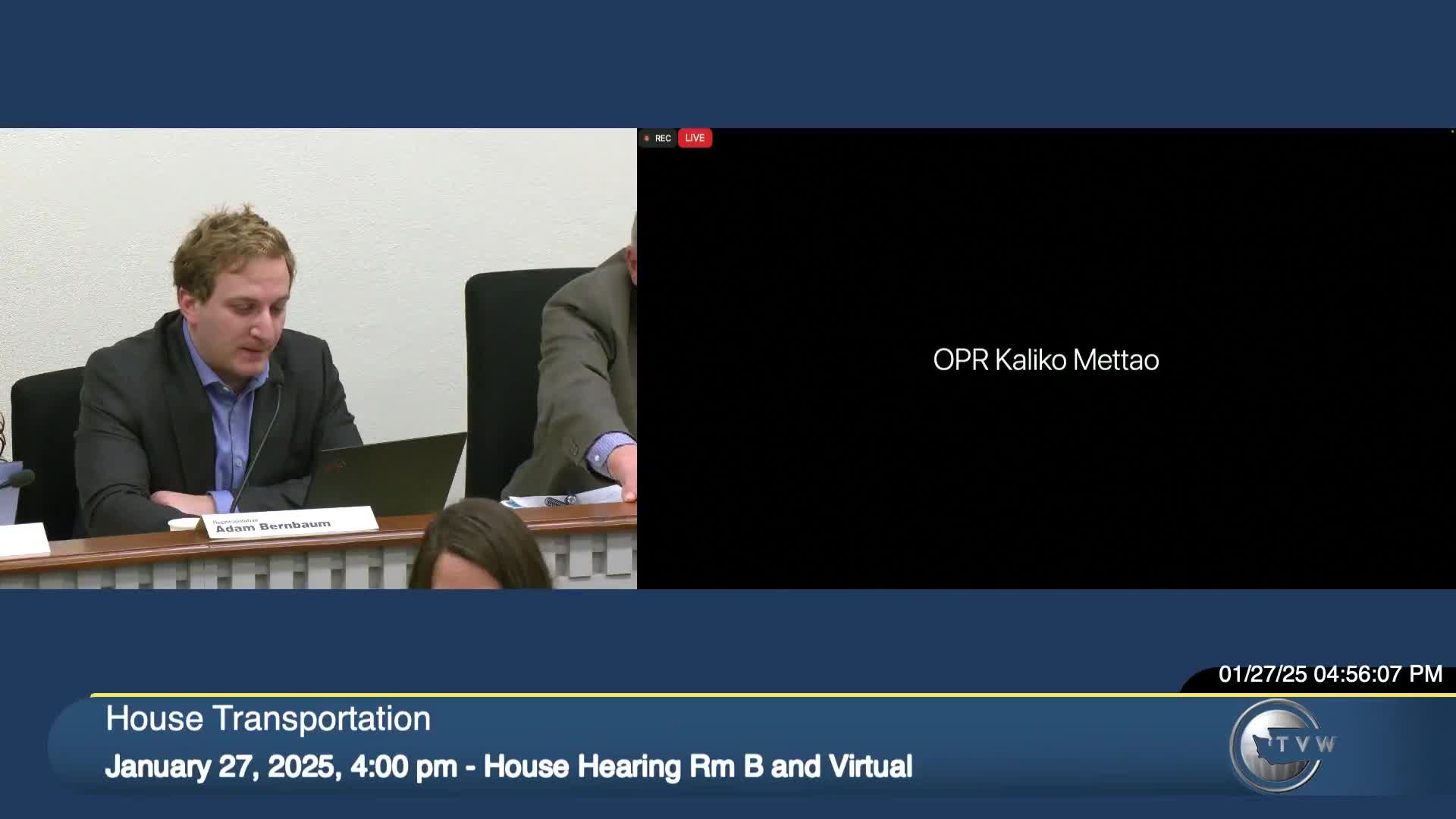Bill to allow noise‑activated cameras for vehicle racing draws support and privacy concerns
Get AI-powered insights, summaries, and transcripts
Subscribe
Summary
House Bill 1423 would permit jurisdictions to use noise‑activated cameras in designated racing enforcement zones to detect excessive vehicle noise and racing; cameras would capture images and short audio clips, and infractions would be processed like parking violations rather than moving violations.
House Bill 1423, heard Jan. 27 by the House Transportation Committee, would authorize jurisdictions to use automated vehicle noise enforcement cameras in zones designated by local ordinance as vehicle racing camera enforcement zones. The cameras are defined as automated traffic safety cameras that use a combination of camera and microphone technologies to detect racing and sound‑level violations. The bill would permit audio recording only immediately before, during and after a detected violation and requires that images not reveal the faces of drivers or passengers.
Jennifer Harris, committee staff, summarized existing automated traffic camera locations and uses under current law and described how HB 1423 would extend the statute’s framework to noise enforcement cameras. She noted that locations must be analyzed by local legislative authorities before cameras are authorized and that installation sites must be clearly marked at least 30 days before activation. The bill treats camera‑issued notices as infractions processed like parking citations: they would not be recorded as moving violations on a driver’s record, and a registered owner could contest the notice by stating under oath that the vehicle was stolen or in someone else’s care.
The bill sets the maximum infraction at $145 (adjusted for inflation every five years), with potential doubling in school zones. It also includes provisions for reduced penalties: registered owners receiving state public assistance other than Medicaid who request reduced penalties must be granted a 50% reduction. Revenue from camera enforcement would be restricted to traffic‑related activities, construction and maintenance, and camera administration; beginning four years after initial placement, 25% of revenue must be deposited in the Cooper Jones Active Transportation Safety Account, subject to listed exceptions.
Representative Brandy Donaghy, sponsor, said the cameras use a microphone that activates a three‑second recording and that each potential violation would be reviewed by a trained human before citation processing. Donaghy described the cameras as a tool to detect vehicles used in street racing and to identify extreme exhaust modifications that create repeated loud backfires and public safety hazards.
Supporters described noise and street‑racing nuisances as concentrated public safety and health problems. Ben Zarlingo of the Everett City Council said excessive noise and racing are a top community complaint in his city and argued that the technology can provide a targeted tool where police resources are limited. Zarlingo cited health research on noise impacts and said jurisdictions have used a cautious, safety‑focused approach when authorizing related automated systems.
Critics raised civil‑liberties, accuracy and equity concerns. Ramona Brandes, representing the Washington Defender Association and the Washington Association of Criminal Defense Lawyers, opposed the bill and warned that audio recording in public raises privacy issues, that local decibel standards vary and are not standardized statewide, and that the bill provides no explicit statutory decibel threshold. Brandes said the bill lacks clear limits on data retention and expressed concern about mission creep and disproportionate impacts of automated enforcement on low‑income and minority communities.
Committee members asked technical questions about how decibel readings would be handled in urban environments where echoes and surrounding sound can affect measurements. Staff said DOL does not anticipate a fiscal impact and that the Administrative Office of the Courts’ fiscal information was pending; local governments were shown as having no fiscal impact because the bill is permissive.
The hearing record closed with proponents and opponents presenting competing policy priorities. The committee did not take action on the bill during the hearing; if enacted, the bill would take effect Jan. 1, 2026.
